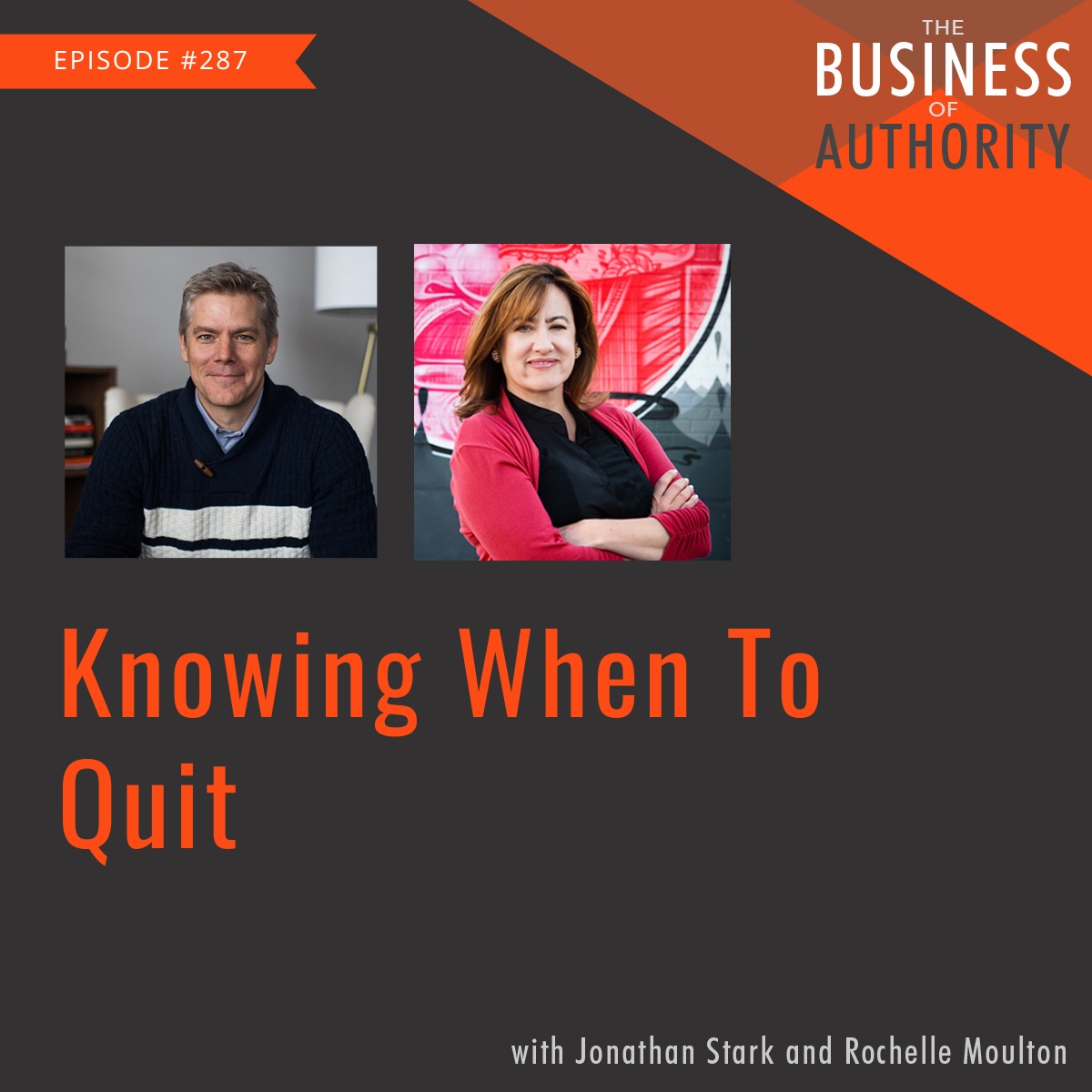Knowing When To Quit

How often have you heard things like “winners never quit” or “quitters never win”?
A lot of us are hardwired to just power through difficult situations, no matter the financial, personal and opportunity cost. But what if instead, we stopped and asked ourselves: maybe it’s time to quit this?
Jonathan and I explore how to decide whether quitting is your best option (and what to do afterwards):
How to think about sunk costs—and the cultural and emotional messages around abandoning your “thing”.
Evaluating opportunity costs—how to know when it’s time to quit to free up resources for other things.
The value of asking for outside input before making large investments—and how to get it.
Why setting kill criteria right at the start of your new investments (and not well into the project) may be your best move.
The cultural and emotional aspects of quitting that no one talks about, but pretty much everyone experiences.
Quotables
“It’s always easier to see when you think someone else should quit something. It’s like, you’ve been trying to become an actor for 40 years and you’ve had one walk on part. I think it might be time to quit.”—JS
“I’m thinking of something that I dropped and, duh, it didn’t work because I didn’t do any freaking research to make sure anybody even wanted this thing.”—RM
“If you’ve only got a few chips on the table, it’s no big deal. It’s just like, eh, this is an experiment, didn’t work out. And if you keep doing those, eventually one is gonna be not crickets. One is gonna be take my money.”—JS
“The right people will say yes to a call or some kind of an interaction. And if they won’t, then it doesn’t matter how good your idea is—then you need to spend some time getting these people to want to take your calls…”—RM
“If you think quitting is for losers, maybe reframe that in your mind in terms of knowing when to quit.”—JS
“Fear is what keeps people in terrible jobs, in terrible relationships, in businesses that don’t fit them, in roles that really are bad for them. It’s that fear of…but what do I do next?”—RM
“The type of goal that you have can make it easier or harder to know what the kill criteria is or are.”—JS
“So much is possible, if we allow ourselves not to stick with everything that we start.”—RM










